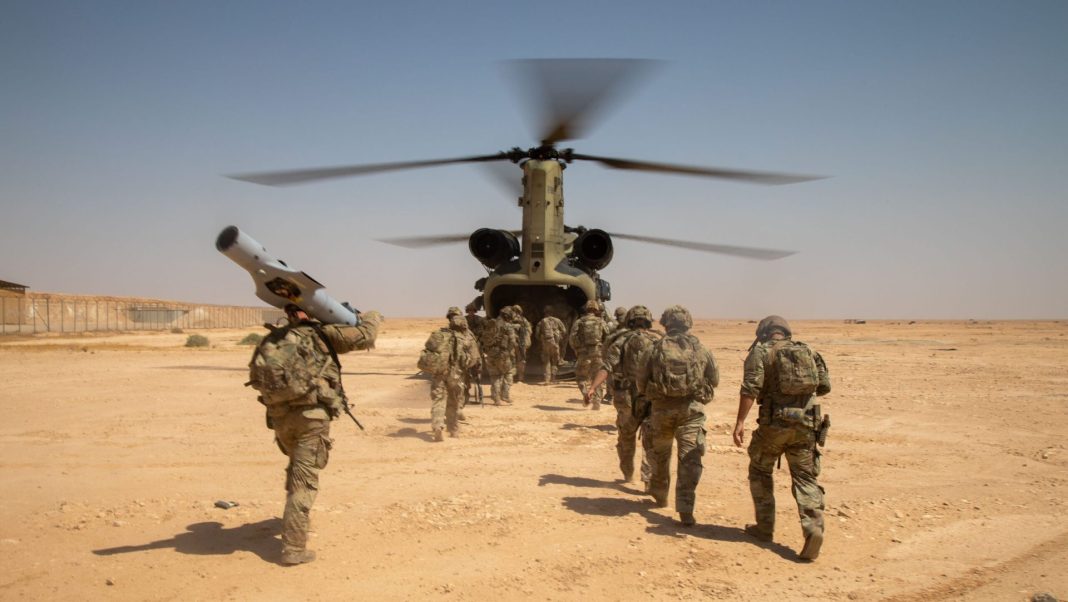A first round of talks opened on 27 January but was swiftly suspended after a drone attack killed three US military personnel at a base in Jordan the following day. The attack was claimed by the Islamic Resistance, an Iraq-based militia group, and led to US reprisal strikes.
“The supreme Iraqi military commission resumed on Sunday its meetings with international coalition forces in Baghdad,” General Yehia Rasool, military spokesman for Iraq’s prime minister, said in a statement.
“As long as nothing disrupts the serenity of these talks, the meetings will take place on a regular basis in order to achieve the commission’s works as soon as possible,” he added.
Rasool stated the meetings were aimed at setting up a “timeline” for a “progressive pullout” of coalition forces from Iraq, leading to the end of its mission.
The US-led military coalition was formed in 2014 to fight the Islamic State (IS) group – the year the terror group overran nearly a third of Iraq’s territory and swathes of neighbouring Syria.
US and allied troops have been targeted more than 165 times in the Middle East since mid-October, in attacks linked to Israel’s assault on Gaza.
The majority of the attacks have been claimed by the Islamic Resistance in Iraq, a loose alliance of Iran-backed groups angered by US support for Israel.
The United States has retaliated with several deadly strikes targeting these groups.
Washington has 2,500 soldiers in Iraq and some 900 troops in Syria as part of the coalition against IS.
Its troops in Iraq are deployed at the invitation of Baghdad, but those in Syria are stationed in areas outside Syrian government control.
Currently, US troops in Iraq provide assistance to government forces to prevent a re-emergence of the IS militants.
In Sunday’s statement, Rasool said discussions were now focusing on evaluating the threat posed by IS, which has been defeated in Iraq and Syria but still has sleeper cells that carry attacks.
The talks were also centring on “the capabilities of the Iraqi armed forces”, he added.
In order to replace the international coalition, Iraqi authorities want to engage in bilateral military cooperation with the member states contributing to the force.
But the process is likely to be long. A statement on Thursday from the coalition said the objective now was “to assess” the progress made in defeating the militants, and to “discuss the future transition” of the coalition’s mission.
